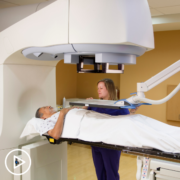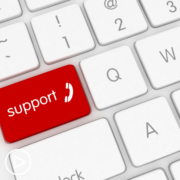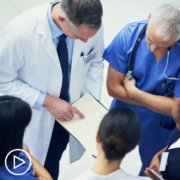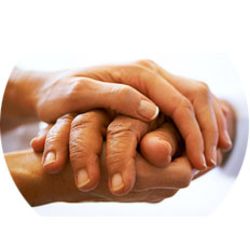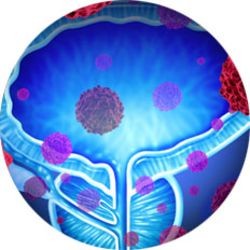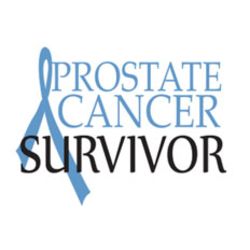Top Tips and Advice for Prostate Cancer Patients and Caregivers Navigating Treatment
Top Tips and Advice for Prostate Cancer Patients and Caregivers Navigating Treatment from Patient Empowerment Network on Vimeo.
What should prostate cancer patients and caregivers know about prostate cancer treatment? Dr. Leanne Burnham shares advice for patients with concerns about treatment side effects, information about active surveillance, and some specific advice for Black men with prostate cancer.
See More From the Prostate Cancer TelemEDucation Empowerment Resource Center
Related Resources:
Transcript:
Dr. Leanne Burnham
Yes, so it is a couples’ disease for sure, and you want to make sure to do a little bit of your own research. Make sure that your doctor knows how this disease affects Black men differently, because what I see a lot of time, even in my own family, my husband’s family members that get prostate cancer and they come to me, a lot of times, their doctor will recommend active surveillance. And it may not be appropriate for African American men if you look at the research and you look at the studies. And so, it may benefit you to just ask your doctor, “Do you treat a lot of Black patients, or do you see any difference in their survival rates versus your other patients?” And really consider that when you’re thinking about whether to do active surveillance or not. Once it gets time for treatments, one thing when I — because I talk to a lot of men and support groups, and men are scared, they don’t want to lose their urinary function, they don’t want to lose their sexual function. And so, they’re nervous about certain diseases and in terms of surgeries and radical prostatectomy, there are nerve-sparing surgeries now to really protect that function afterwards, and there are exercises that can be done afterwards to also help improve, and so ask the nurses in your setting, “What are some of those exercises that can be done?” But one thing to keep in mind is every treatment comes with its sort of risk, right?
So, no matter whether you choose radiation or surgery, there’s always a risk that you may lose some of that function, what I tell men, and not to sound not sensitive to the matter, but a lot of men, they’ll say, you know, “Oh, if I get this treatment and what if I can’t have sex anymore?” You’re not going to have sex when you’re buried 6 feet underground either. And so, you want to be able to get those treatments, the ones that you and your physician have a shared decision in and in deciding what’s best as a couple. But you don’t want to be naive if you’re at the doctor and you have a really elevated PSA and you have a Gleason score of 8, and your doctor is telling you, “We really need to treat this,” you don’t want to shy away from that, because you’re scared of the side of the side effects in that setting. You can look for where the best surgery center is if they have the nerve-sparing surgery, as I said, and explore your options that way. But don’t put it off so long, because you’re worried about the side effects. And if you don’t get treatment and your doctor wants you to, as time goes on, you’ll lose the urinary function and the sexual function anyways.
So yeah, it’s not something that you want to put off because you’re scared about the side effects. And a lot of men do have side effects temporarily, and then they regain their function, and I really encourage to join support groups virtually now because of how the role is set up. But just talk to some other men that have had some of these procedures and see how they’re doing. And I personally haven’t met a man that felt like, “Oh, I have been cured from prostate cancer, and now I have the side effects, and I wish I wouldn’t have had the procedure,” I haven’t met one. And I know in those who have side effects and they had surgeries and 10, 15 years ago, and they have side effects, I’m not going to act like that doesn’t happen. But none of them have ever expressed to me that they wish they could go back in time and not do that, because, at the end of the day, they’re grateful that they are still here with their loved ones.


